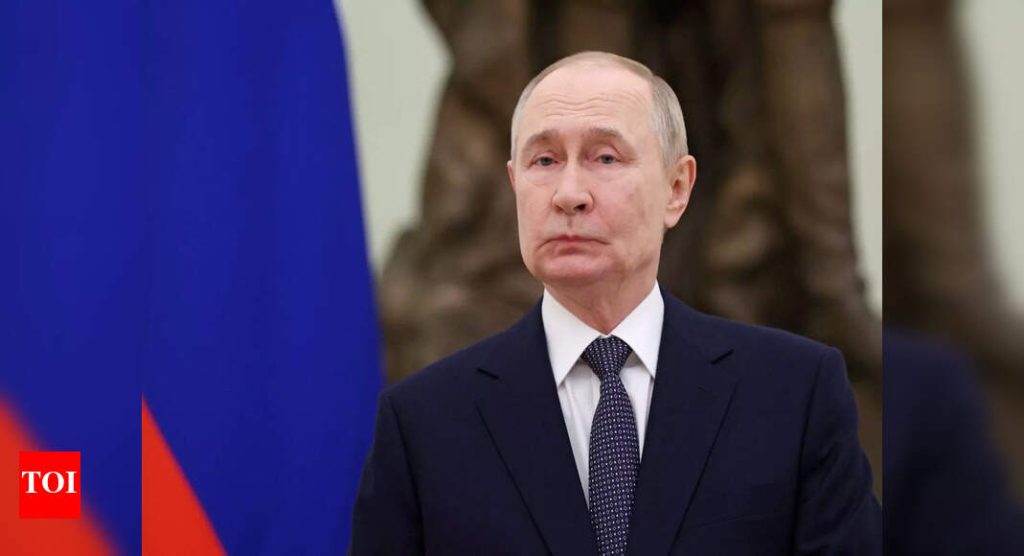Listen to the article
In a move highlighting growing diplomatic tensions, the Russian Embassy in Pakistan has issued a strong rebuke against Peshawar-based English newspaper The Frontier Post, accusing it of running “anti-Russian articles” and spreading “Western propaganda” against Moscow.
The formal statement released Thursday by the Russian diplomatic mission claimed the Pakistani daily consistently presents Russia and its leadership in a negative light, reflecting what they described as a “Russophobic” editorial stance.
“Recently, it has been impossible to find a single article in the international section of the newspaper that portrays Russia or its leadership in a positive or even neutral light,” the embassy stated, suggesting this pattern goes beyond normal journalistic practice.
The Russian mission specifically pointed to the newspaper’s Washington-based global news service headquarters as evidence of American influence over its international coverage. According to the embassy, this connection results in editorial decisions that “invariably gives preference to ardent Russophobes and critics of Russian foreign policy.”
The embassy’s statement further alleged that The Frontier Post had deliberately ignored significant regional developments involving Russia, specifically citing the Moscow Format of Consultations on Afghanistan held on October 7. This high-level diplomatic meeting, which addressed the ongoing situation in Afghanistan, received coverage from other regional media outlets but was allegedly absent from The Frontier Post, despite the newspaper maintaining a dedicated Afghanistan section.
“This approach further highlights the Russophobic nature of the Westernised editorial office,” the Russian statement claimed.
The dispute comes at a time of evolving regional dynamics in South Asia, where Russia has been working to strengthen its partnerships with countries like Pakistan while maintaining its historically strong ties with India. The Russian diplomatic mission’s unusual public criticism of a local newspaper signals Moscow’s growing sensitivity to its media portrayal in the region.
The embassy took particular issue with the newspaper’s coverage of Russia’s economic situation, rejecting claims about Russia’s “weak economy” and “vulnerability to sanctions” as factually incorrect. In its defense, the Russian mission cited official statistics showing 4.1 percent GDP growth in 2024, an 8.5 percent increase in manufacturing, and a 2.5 percent unemployment rate.
“These are strange indicators for a country with an ‘economy vulnerable to collapse,'” the statement remarked sarcastically.
The Russian mission also highlighted recent military advancements, including the testing of the Burevestnik cruise missile and Poseidon underwater vehicle, as evidence of Russia’s continued strategic capabilities despite Western sanctions imposed following the invasion of Ukraine.
The unusual diplomatic intervention against a media outlet concluded with an appeal directly to Pakistani citizens, urging them to “seek information from various sources and not rely on publications that serve the dubious interests of foreign sponsors.”
This incident reflects broader tensions between Russia and Western-aligned media globally, as Moscow continues to face international criticism for its actions in Ukraine and other geopolitical disputes. For Pakistan, caught between maintaining relationships with various global powers including Russia, China, and the United States, such diplomatic friction highlights the challenges of navigating complex international relationships.
The Frontier Post, one of Pakistan’s established English-language newspapers, has not yet publicly responded to the Russian Embassy’s allegations. The publication, which covers domestic and international affairs, now finds itself at the center of an unexpected diplomatic dispute that underscores the increasingly contentious nature of information warfare in international relations.
Fact Checker
Verify the accuracy of this article using The Disinformation Commission analysis and real-time sources.




13 Comments
The Russian Embassy’s criticism of the Pakistani newspaper’s coverage is troubling. Responsible journalism should strive for objectivity, even on sensitive international issues. This situation merits close monitoring to ensure press freedoms are upheld.
This dispute highlights the delicate balance between national interests and press freedoms. While media outlets should aim for impartiality, the Russian Embassy’s strong language is worrying. Constructive dialogue between all parties is needed to resolve such tensions.
Diplomatic spats over media coverage are never a good sign. Both Russia and Pakistan would do well to encourage open and transparent journalism, rather than making accusations of bias. Thoughtful, fact-based reporting is essential for public understanding.
The Russian Embassy’s claims of ‘Western propaganda’ in the Pakistani newspaper’s reporting are concerning. Responsible journalism should strive for objectivity, even on sensitive international issues. This situation merits close monitoring.
Diplomatic spats over media coverage are never a good sign. Both Russia and Pakistan should encourage open and transparent journalism, rather than making accusations of bias. Fact-based reporting is essential for public understanding, regardless of political tensions.
The Russian Embassy’s criticism of the Pakistani newspaper’s ‘anti-Russian’ coverage is a concerning development. Maintaining press freedoms and objective reporting is crucial, even in sensitive geopolitical contexts. This dispute merits close monitoring.
It’s troubling to see the Russian Embassy lashing out at a Pakistani newspaper over its coverage. Accusations of ‘Russophobic’ reporting are concerning and could further strain relations. Journalists must be able to report without undue political influence.
I agree, this situation requires careful handling. Both sides should prioritize open communication and a commitment to factual, unbiased journalism.
Interesting diplomatic tensions between Russia and Pakistan. It’s important to maintain objective journalism and avoid biased or one-sided reporting, regardless of the geopolitical context. Curious to see how this situation develops.
This dispute highlights the delicate balance between national interests and press freedoms. While media outlets should aim for impartiality, the Russian Embassy’s strong language is worrying. Constructive dialogue between all parties is needed to resolve such tensions.
This dispute over media coverage reflects the broader geopolitical tensions between Russia and the West. It’s crucial that journalists maintain independence and resist undue influence, whether from governments or other vested interests.
The Russian Embassy’s strong rebuke against the Pakistani newspaper is concerning. While media outlets should strive for balanced coverage, accusations of ‘Russophobic’ propaganda are troubling. This highlights the delicate nature of international relations and press freedoms.
I agree, this is a sensitive issue that requires nuanced handling. Both sides should aim for constructive dialogue rather than inflammatory rhetoric.